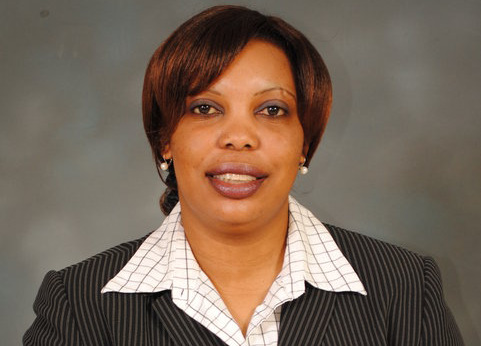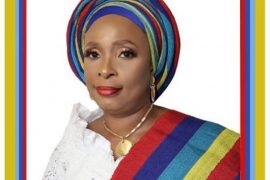In order to bridge the gender gaps and create an enabling avenue for women to thrive in emerging economies, it is important for already established women to lend a helping hand to other women across regions through mentorship, valuable tips, as well as different forms of empowerment.
It is against this backdrop that the Amazons Watch Magazine in a recent interview with Lindy Wafula, Founder of Village Ventures International, focused on finding out the basic tenets of social enterprise.
Ms Wafula shed some light on her experiences as a social entrepreneur, the challenges she faced and how she managed to surmount those challenges. She also gave useful suggestions on how women across regions can take charge of their lives. Excerpt:
In a few sentences, please describe the person of LINDY WAFULA.
Lindy Wafula is a social entrepreneur and founder of Village Ventures International which is a social enterprise aimed at empowering women, youth and people with disabilities with skills and resources for leadership, enterprise and sustainable community development. Lindy Wafula is a go-getter and committed to achieving sustainable development goals.
When we talk about women empowerment in Africa what we see is a situation where women are being taught handcraft. Are there any conscious efforts on your part to train women on financial independence both along career paths and in business ventures?
Yes. I have not only advocated for women to be trained in leadership, vocational skills and financial independence but also steered projects to empower women with technical skills most especially in trades that have been called Male jobs. One such project is the Lady Mekanika Project which I launched in Makadara, Nairobi to empower women with automobile mechanics Skills for enterprise development. To date we are proud of the successes of the young women we trained as a majority now run their own automobile clinics while others are employed by big automobile dealer companies in Kenya.
I am also making an effort to train women in mobile technology first through the repair of mobile phones and also the creation of mobile Apps.
Village Venture Kenya aims to make an impact by investing in social innovation for enterprise development. One of the major challenges in Africa is the sustainability of projects. What are your strategies towards ensuring the sustainability of this project?
The social entrepreneurial aspect of our organization Village ventures International aims to raise income from our activities either as equity from investors or capital investment from the beneficiaries to ensure continuity and sustainability. Previously, while running Project Africa which was purely a non-profit organization, we struggled to ensure there was continuity of projects and programs because of dependency on grants. From this experience, we learnt that we can adopt the social enterprise and social impact methodology and we are able to raise some capital from subsidized fees paid towards our services to the community.
Although there is an improvement in the number of women in political offices and top executive positions, there is still a wide gender gap in the workforce. What are some of the ways you think this gap can be bridged?
Indeed there is a gender gap in top management and leadership both in the private and public sectors in Africa. We need to continue speaking to women that it is possible for us to rise to the top. That what a man can do a woman can do. Most importantly, power is not given power is taken. Therefore, women must dare to engage in leadership both in the public and private sectors. I have dared not only to start up and run Village Ventures International but I have also made attempts and run for elective office in Kenya. On two occasions that I ran, first in 2010 and in the 2013 general election, I was competing against men. In the 2013 Election, I was 3rd overall meaning that it is possible to run and win elections.
However, there must be deliberate efforts made to support women with the skills and resources they need to rise and stay at the top while delivering essential services that communities need. Women must be encouraged to network and build alliances that ensure their skills are recognized whenever opportunities arise.
As a prospective member of parliament in Kenya, what will you say are some of the women-friendly policies that should be passed into law for women to enjoy societal benefits?
I have not been a Member of Parliament in Kenya yet but I have that vision. I have run in elective politics in Kenya two times and lost. But I have not given up the vision. From outside parliament in Kenya, I would like to see women-friendly policies such as the two-thirds gender rule which aims to have two-thirds of elective seats and public appointments being occupied by women. This will promote gender equality and the empowerment of women in leadership.
What are some of the challenges you have encountered while being the voice of women in your country?
First and foremost, the greatest challenge has been lack of financial resources to support the great vision of providing vocational skills and other services to women, youth and people with disabilities in my community. My organization has been dependent on grants given to us by partners on goodwill but these are mostly one time grants. Being that we are determined to effect social change and it may take at least 5 years to see the impact of our work. One time grants can only be likened to a teardrop in a wild fire of poverty and needs affecting communities.
The other challenge is the effect of cultural beliefs that undermine women as subordinates and therefore cannot lead. I am still struggling to prove to my community that women too can be successful political and business leaders who are able to effect positive socio-economic change.
Last but not least, the other challenge is the economic deprivation that women in the community suffer making them over-dependent on men. Lack of skills and resources for enterprise development has been a reason why women are unable to start-up businesses that they can earn income from and be financially independent. Lack of financial independence means that women and girls are unable to make decisions on matters that concern them and their households. This means that even when we have conceptualized and designed projects that are aimed to empower women and girls, they must get permission from their male sponsors in order to participate
What in your opinion is the most pressing issue faced by African women today?
In my opinion, the most pressing issues affecting African women today include:
- Illiteracy and lack of vocational skills
- Lack of financial support
- Lack of representation
What is your take on the issue of marginalization against women across regions?
Marginalization and gender disparity is still a major problem in many parts of Africa. I think that many governments in Africa have not prioritized primary sustainable development policies. In almost every country in Sub-Saharan Africa, poverty reduction strategies still do not take into account differences in income and power between men and women thus hampering efforts to finance programmes that reduce inequality. In addition, the majority of African women, are still denied education and employment and have limited opportunities in trade, industry and government.
In your opinion what is the one thing that will positively affect the status of women such that their contributions to society will be seen and felt?
The One Thing that will positively affect the status of women in Africa, such that their contributions to society are seen and felt is for African women to organize themselves into a strong feminist and women suffrage movement from the grassroots village level, up to nationally and continentally. We must borrow a leaf from the feminist movement that has effected change in Western society and advocate for greater access to education; more equitable pay with men; the right to initiate divorce proceedings; the right of women to make individual decisions on their sexual and reproductive health, the right to own property, and the right to vote and be voted for. By doing these, women in Africa will have been empowered not to wear the face of poverty because the elimination of all forms of discrimination against women will have been achieved by a much greater extent than it is today.
What’s the best way for the readers of Amazons Watch Magazine to connect with you?
Twitter @LindyWafula
Linkedin: Lindy Wafula




